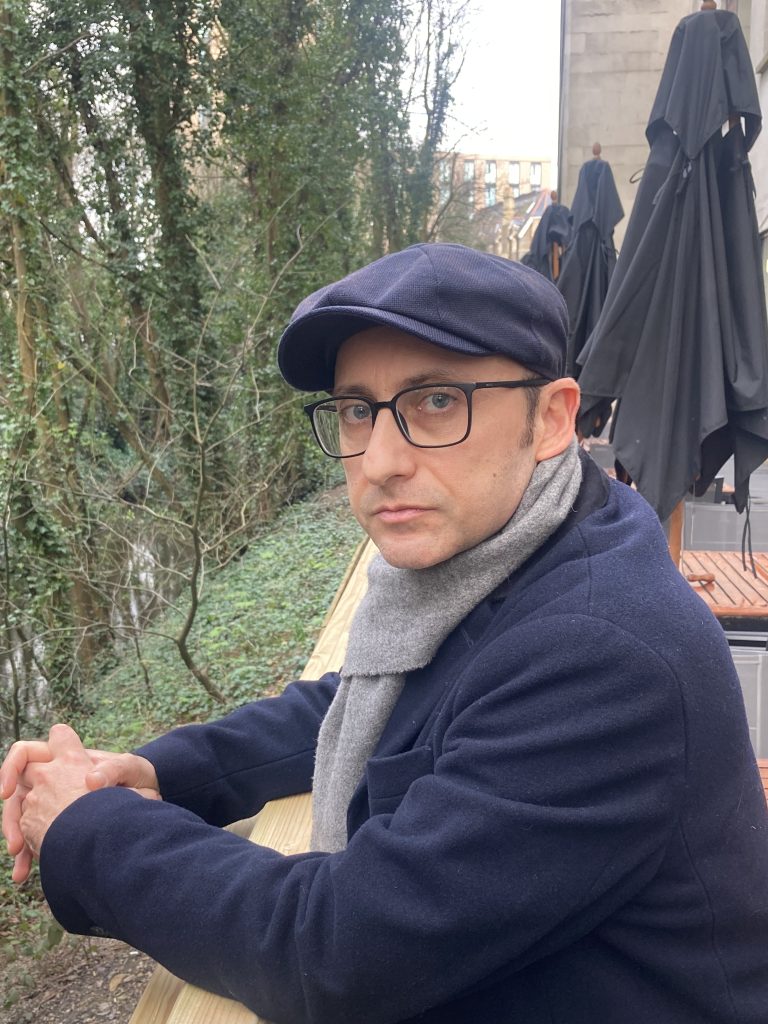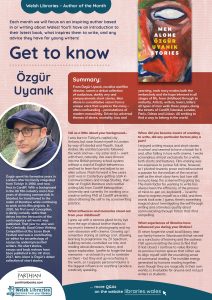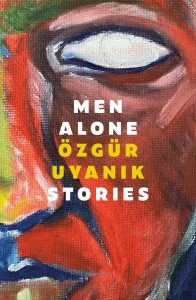Özgür Uyanık
July 1, 2024
I was born in Türkiye’s capital city Ankara, but soon found myself in London by way of İstanbul and Riyadh, Saudi Arabia. My architect parents followed the work and we – my sister and I – went with them, naturally. We were thrown into the British primary school system without a word of English between us and had to learn fast and adjust to an alien culture. Flash forward a few years and I was in Canterbury getting a BA in Communications and Image Studies, then later an English literature and creative writing MA from Cardiff Metropolitan University and currently I’m working on a creative writing PhD at Cardiff university about othering the self in my screenwriting practice.
What influences and memories stand out from your childhood?
I grew up with a camera glued to my eye from the age of about twelve thanks to my mum’s interest in photography and my own obsession with cinema. Growing up I remember staring at ceilings a lot, drawing, learning to programme my ZX Spectrum, building remote-controlled car kits, and reading about dinosaurs, history, and space exploration. I prefer to forget the bad memories – or at least try not to ruminate on them – but they end up resurfacing in the work, so I suppose personal trauma is the biggest influence on anything I produce, creatively speaking.
As a young person, who or what influenced you?
My influences were mainly non-fiction books and mainstream cinema as well as musicians like Public Enemy. In my mid-teens I discovered literature, art, and arthouse film and came to admire in particular the work of the French New Wave, the Impressionists, Hemingway, and Dostoevsky to name a few. As for people in my everyday life, I was very much guided by my parents and illustrious grandmother in terms of attitude to life, ideology, and taste.
What are your influences now?
I feel like everyone and everything influences me nowadays, but if I am to be specific to my collection of short stories then I would say the biggest influences might include David Foster Wallace, Charles Bukowski, Raymond Carver, John Cheever, H.H. Munro (aka Saki), Angela Carter, Paul Auster, Jorge Luis Borges, Aziz Nesin, Orhan Pamuk and Orhan Kemal. Those are the “big names” anyway – there are many, many others whose work I admire and would want to emulate in some way or another.
When did you become aware of wanting to write, did any particular factors play a part?
I enjoyed writing essays and short stories in school and seemed to have a knack for it and, after falling in love with cinema, I wrote screenplays almost exclusively for a while, both shorts and features. Film-making was too expensive to pursue full-time, however, so I pivoted towards prose and rediscovered a passion for the medium of the novel as well as the short story form, but I am still trying to keep the screenwriting going too. The main factor for wanting to write has always been the efficiency of the process of mind-to-pen (or, keyboard) – I used to draw to express myself as a child, and then words took over, I guess; there’s something magical about investigating the self through writing and a timeless quality about communicating through fiction that I find compelling.
Tell us a little about Men Alone, where did the inspiration come from, and what do you hope readers will take from the stories…
It’s a collection of short stories. I hope that the reader will find a kind of solace in the storytelling: a vicarious ride into some darker territory, for those who feel – as I do – that their internal world is too messy to contemplate sometimes, but that the journey is worth the effort. The inspiration, or starting point at any rate, for all the stories were the raw experiences of life that then evolved on the page into what they are now: made-up stories we call fiction. The stories are for anyone who is drawn to the psychological exploration of the modern human condition, albeit exclusively from the viewpoint of various male characters. Taking a narrow view was a conscious decision because I wanted the stories to be authentic and meaningful for the reader, whatever gender they might be.
What are your favourite reading genres, and what books are you reading at the moment?
Literary fiction novels, short stories, memoir, and non-fiction – mostly history, politics, cultural philosophy, and geography – are all favourites. Currently reading Songs My Mother Didn’t Teach Me (Selçuk Altun), The Afterlives of Roland Barthes (Neil Badmington), and Ambassador of Nowhere: A Latin American Pilgrimage (Richard Gwyn). I try to read Turkish authors in the original language when I can – the music of it is so much more interesting to me than English, I must say.
What experiences of libraries have influenced you during your lifetime?
I’ll never forget the small local library near our family home in Wandsworth that served as a sanctuary of learning and the sadness I felt upon revisiting the area to find that it had closed. I continue to value libraries as precious human spaces that I often use to align myself with the nourishing sense of communal reading. The invisible energy generated by humans reading together, even though they are magically in their own worlds, is invaluable for anyone and not just writers or students.
What suggestions do you have to encourage children and young people to read more for pleasure?
The habit must be formed early and those best placed to help children and young people are their parents or guardians. If one hasn’t been lucky enough to have been nurtured to read for pleasure, then one has to do it alone – to form that beneficial habit of reading – and treating it as a mission in life akin to staying physically healthy is a good way to go, I think.
Give us a quote that is at the heart of your life…
“It is not death that [we] should fear, but… never beginning to live.” (Marcus Aurelius).
Many congratulations again Özgür – Men Alone will be published in July by Parthian Books.
Thanks to Parthian Books for arranging the interview.
Read our Get to Know the Author flyer and take a look at our previous Authors of the Month writing in English.


